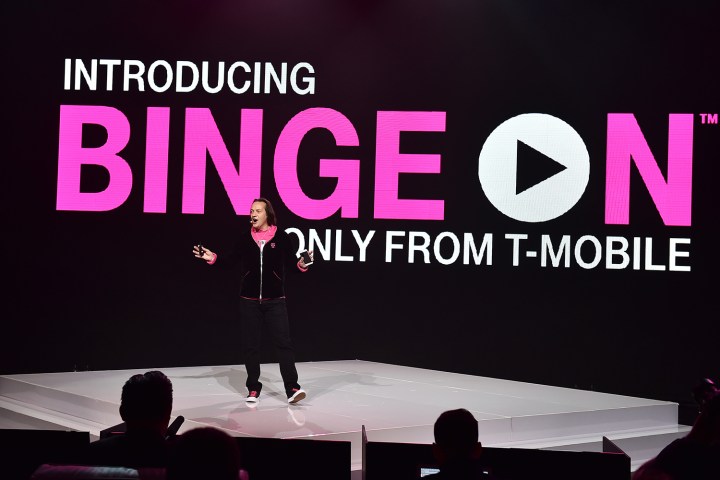
In a report published on Monday, the EFF shows that T-Mobile’s “video optimization” is nothing more than network throttling. It lowers all video content, regardless of the service, to 1.5Mbps.

That allows T-Mobile to cut the costs of supplying video content, by lowering the video quality to 480p. T-Mobile argues that most customers are simply incapable of viewing higher quality video, despite some customers suggesting they could watch HD video before the Binge On program launched.
YouTube is the biggest video provider in the U.S. to not support the Binge On program, and last week said T-Mobile is throttling its content. It wants to see the program become opt-in rather than opt-out, or have services unsupported removed from the program.
T-Mobile has not said whether it will honor YouTube’s requests. In a statement made shortly after YouTube’s comments, T-Mobile refuted claims it is throttling video content, despite clear evidence that it is lowering the bandwidth for video content across its network.
The third largest network might face more than angry customers and services in the near future, with the Federal Communications Commission (FCC) sending letters to T-Mobile, AT&T, and Comcast on the new “data-free” services, which might break net neutrality laws set in place last year.
T-Mobile has been winning over customers with its new Un-Carrier deals, but this latest program might hurt the company, especially if video services or net neutrality advocates continue to fight against it. The EFF says the FCC should investigate the Binge On program, and we suspect in the next few months we will hear a lot more about the program’s future.
Editors' Recommendations
- YouTube TV just got even better on iPhones and iPads
- YouTube rolling out some three-dozen new features this fall
- YouTube gives iOS users another reason to pay for Premium
- It’s late 2022, and Verizon and AT&T still can’t beat T-Mobile’s 5G network
- This YouTube Apple Watch app is just as ridiculous as you’d expect


